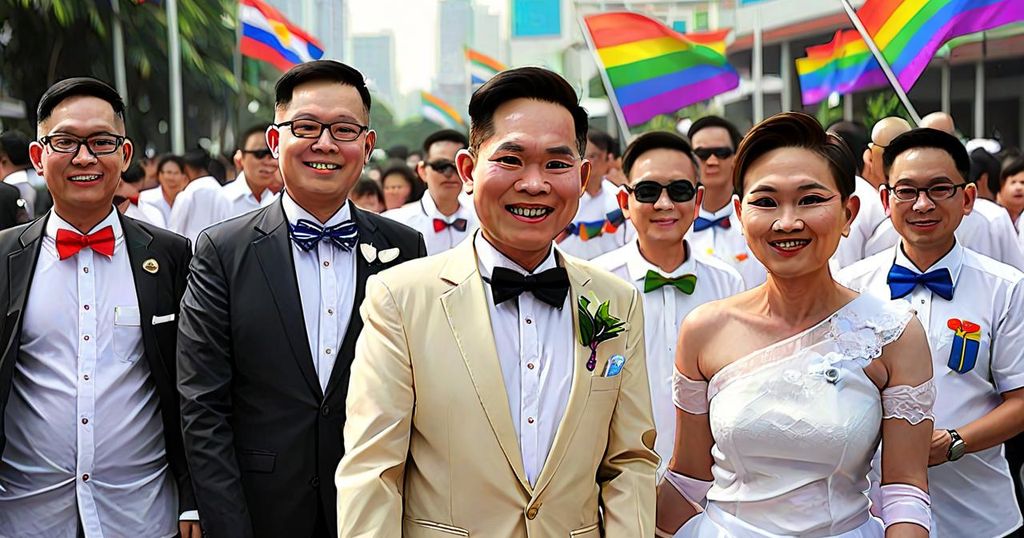Thailand has recently achieved a historic milestone for LGBTQ+ rights in Asia by passing a marriage equality bill that could potentially make it the first country in Southeast Asia to recognize same-sex marriage. During its final reading, 130 senate members voted in favor of the bill, with only four voting against it. This places Thailand on course to become the third Asian country, alongside Taiwan and Nepal, to legalize same-sex marriage in the region.
Assuming the bill receives the expected royal approval, same-sex couples in Thailand could be able to enter into marriage by the end of this year. The news has been received with widespread joy, with crowds celebrating in the streets of Bangkok with rainbow flags following the announcement.
According to CNN, Panyaphon Phiphatkhunarnon, the founder of the Love Foundation NGO, described it as a “monumental step forward for LGBTQ+ rights in Thailand.” This development represents a significant milestone for the LGBTQ+ community and signifies a major accomplishment in the struggle for equality and recognition.
This decision comes at a time when several other countries around the world have made strides in granting more rights to LGBTQ+ individuals. Estonia, for instance, became the first Baltic nation to legalize same-sex marriage earlier this year, and Greece became the first Christian Orthodox-majority country to follow suit. The news in Thailand follows more than 10 years after similar rights were granted to same-sex couples in the UK in 2014.
With Thailand’s historic decision, it is important to consider the global landscape of same-sex marriage legalization. Same-sex marriage is already allowed in much of Western Europe, North America, and South America, as well as Australia and New Zealand. The list of countries that have legalized same-sex marriage continues to grow, with many countries recognizing and affirming the rights of LGBTQ+ individuals.
However, there are still regions where same-sex marriage remains illegal, particularly in Eastern Europe, Africa (except for South Africa), and most of Asia (except for Taiwan). Even in countries where same-sex marriage is legal, there is still progress to be made in terms of social acceptance and equality for LGBTQ+ individuals.
In the United Kingdom, same-sex marriage was legalized in different stages, with England and Wales leading the way in March 2014, followed by Scotland in December 2014, and Northern Ireland in 2020. According to the US-based Pew Research Center, in 2020, same-sex marriages accounted for 3.3% of marriages in England and Wales, 3.5% in Scotland, and 4.2% in Northern Ireland. These figures reflect the growing acceptance of same-sex marriage in the UK.
The decision to legalize same-sex marriage in Thailand is a pivotal moment in the fight for equality and recognition of LGBTQ+ rights. As we celebrate this milestone, it is crucial to continue advocating for equal rights and acceptance for all individuals, regardless of sexual orientation or gender identity. The global movement towards marriage equality is a testament to the progress being made, and it is a step towards a more inclusive and equitable world for everyone.

Leave a Reply